|
| |
This week in: Peace & Security Publications |
IPSI | Africa | Americas | East Asia | Europe & Central Asia | Middle East | South Asia
|
|
|
|
| |
This week in Peace & Security Publications
|
|
|
|
| |

CSIS: The Center for Strategic and International Studies (CSIS) hosted a roundtable discussion on the prospects for rationalizing the Department of Defense’s (DOD’s) real property assets in a strategic context. Attendees consisted of current and former government officials and experts from CSIS and other…
|
|
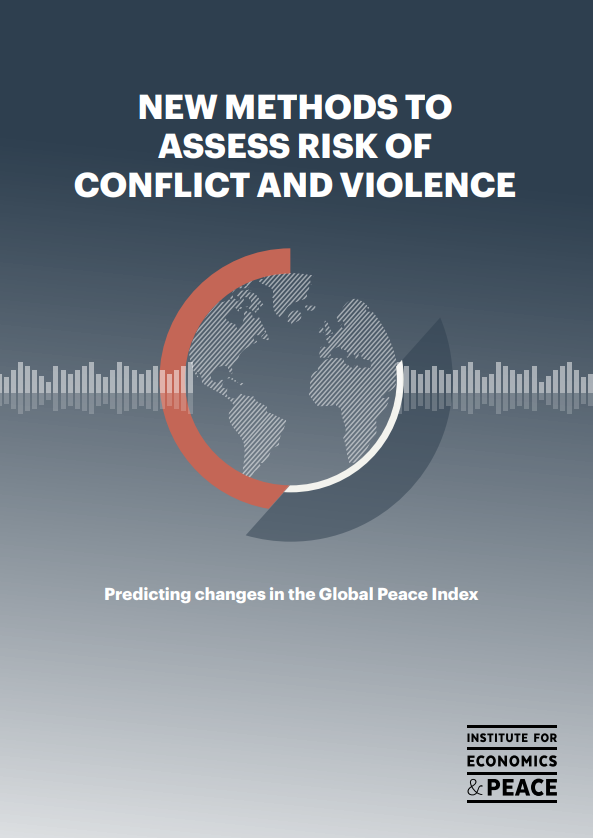
IEP: The report is a pioneering attempt to forecast and predict
changes in the IEP’s Global Peace Index (GPI), based on IEP’s
unique Positive Peace framework that empirically measures
the attitudes, institutions and structures that build a more
peaceful…
|
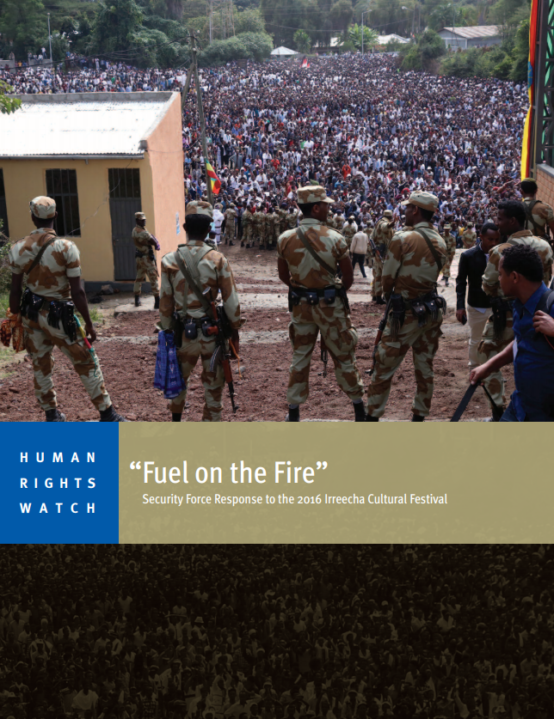
HRW: On October 2, 2016 scores of people, possibly hundreds, died in a stampede at the annual Irreecha cultural festival of Ethiopia’s ethnic Oromo people. Security forces had used of teargas and discharged firearms in response to an increasingly restive crowd. Some victims died after falling into a deep open trench, others…
|
|
|
|
|
|
| |
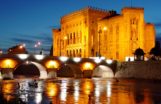
Sarajevo Blogs! Experience the Sarajevo Symposium on Post-Conflict Transitions through the eyes of the participants in their daily blog!
|
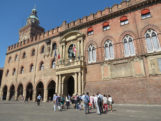
Bologna Blogs! Learn more about Bologna Symposium by reading our blog written by participants from this summer!
|
|
|
|
|
|
| |
This week in Sub-Saharan Africa
|
|
|
|
| |
Central African Republic: Deaths and displacement rises as conflict between rival militias continues
| |
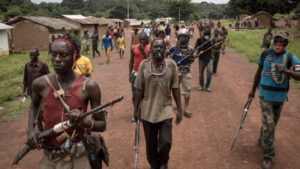
|
On Tuesday, at least 25 people were killed, 50 wounded and thousands displaced as a result of a resurgence in attacks between rival factions of armed groups fighting for territory in various parts of the country. In Yokapi, around 15 people were killed and around 80 houses torched in a violent confrontation between different communities. Human Rights Watch has reported that the civilians caught in this conflict are extremely vulnerable to attacks. According to the report, armed groups have become more emboldened to kill civilians, rape women and girls and destroy property, even in displacement camps, which in the past were considered safe. Comment: The Central African Republic (CAR) plunged into a civil war whem the predominantly Muslim Séléka rebel alliance overthrew former President François Bozizé in March 2013. After Bozizé’s successor Michel Djotodia took power as the country’s first Muslim president, the Anti-balaka militia formed in opposition to the Séléka. When Djotodia stepped down in January 2014, the Séléka rebel alliance split into various factions, and each faction began a de facto terror campaign in different regions of the country – targeting civilians. Since January 2017, the number of displaced people has grown from 400,000 to 600,000 according to the country’s international NGO coordination committee. Many blame the uptick in violence on an overstretched peacekeeping force and rampant impunity for past crimes. (Aljazeera, ReliefWeb, Nigeria News)
|
|
|
|
|
| |
Democratic Republic Congo: Army members kill at least 39 Burundi refugees
On Friday, Congolese forces opened fire on a crowd of Burundian refugees in the town of Kamanyola in South Kivu Province during clashes over the alleged deportation of four Burundian refugees. At least 39 – including one 10-year-old girl – were killed and 94 others were injured. Details of the incident are still unclear. While the UN stated that the protesting refugees were unarmed, other various accounts and the official government’s statements claim that the refugees were armed and attacked the solders. Comment: More than 400,000 Burundians left their country since violence erupted in April 2015, when President Pierre Nkurunziza said he would unconstitutionally seek a third term in office.. 40,000 Burundian refugees currently reside in the Democratic Republic of Congo. (Defense Web, Aljazeera, The Denver Post)
|
|
|
|
|
| |
Nigeria: Female suicide bombers kill 43 – leaving more than 80 wounded
On Monday, at least 15 people were killed in a suicide bomb attack committed on an aid distribution point in Northeastern Nigeria. An NGO has been reported to be distributing aid, but its identity is currently unknown. The first blast took place at 11:10 am local time in the village of Mashalari in the Konduga area, of Bono State; twelve minutes later, another bomber struck. She killed only herself leaving no casualties or injuries. On Saturday, at least 28 people were killed and more than 80 wounded when three female suicide bombers detonated their explosives outside a camp for displaced people in Konduga. No immediate claim of responsibility came for the attack, but Boko Haram has carried out similar bombings in the past in the region. Comment: Northeastern Nigeria is in the grip of a humanitarian crisis caused by Boko Haram violence, which has left at least 20,000 dead and displaced more than 2.6 million since 2009. The violence has devastated farming, leading to chronic food shortages and leaving hundreds of thousands of people on the brink of starvation and dependent on aid agencies for help. (Aljazeera, The Hindu, Miami Herald)
Researched/Written by Brian Adienge
|
|
|
|
| |
This week in the Americas & Caribbean
|
|
|
|
| |
ARGENTINA: “Dirty War” perpetrators sentenced to life in prison for crimes against humanity
On Friday, a federal judge in Buenos Aires sentenced six Argentinians to life in prison for their involvement with the country’s military rule from 1976 to 1983. During the seven year dictatorship of General Jorge Rafael Videla, 30,000 people were kidnapped, tortured or killed. According to some human rights group, about 500 children were illegally taken from their families during the military rule and are still being searched for today. Comment: Last year, former General Luciano Benjamin Menendez was charged with 600 counts of torture, 300 counts of murder and forced disappearances during his time at the at two detention centres, known as La Perla and La Ribera, between 1976 and 1978. Benjamin Menendez was sentenced to life in prison. (TeleSur, Al Jazeera, BBC News)
|
|
|
|
|
| |
BRAZIL: Judge approves gay “conversion therapy” amidst growing protests of the practice
On Wednesday, a federal judge in the capital of Brasília overruled a 1999 decision by the Federal Council of Psychology which banned psychologists from using gay “conversion therapy”. The head of Brazil’s National Lesbian, Gay, Bisexual, and Transgender Alliance stated an intent to appeal the ruling before the Inter-American Court of Human Rights. Comment: There is general global health consensus that conversion therapy is ineffective, unnecessary, and unethical. The World Health Organization removed homosexuality from its list of mental disorders in 1990. (BBC News, The Guardian, NBC News, Human Rights Watch
)
|
|
|
|
|
| |
UNITED STATES: Secretary of State Tillerson considers shutting down U.S. embassy in Havana
On Sunday, Secretary of State Rex Tillerson said the closing of the U.S. embassy in Havana, Cuba, was “under evaluation.” The announcement comes in the aftermath of a sonic attack on 21 U.S. diplomats and two Canadian diplomats affiliated with the embassy. The Cuban government has denied any responsibility for the sonic attack. News agencies say that the US government does not rule out a third-country involvement. Symptoms of the affected diplomats include mild traumatic brain injury, dizziness, nausea, permanent loss of hearing and brain swelling. Comment: The diplomatic relationship between Cuba and the U.S. has grown friendlier since former President Barack Obama visited the country in 2016, with the reopening of the embassy a year prior. In a reversal of Obama’s approach President Donald Trump has reinstated some of the previous travel and commercial restrictions. (Al Jazeera, BBC News, CNN, The New York Times)
Researched/Written by Blessing Ikpa
|
|
|
|
|
| |
This week in East Asia & Pacific
|
|
|
|
| |
AUSTRALIA: Fifty refugees to resettle in U.S.
On Wednesday, Australian Prime Minister Malcolm Turnbull said 50 refugees held in camps Nauru and Papua New Guinea will resettle in the U.S. His statement marks the beginning of resettling 1,250 Australian refugees in the U.S., part of a deal made by former U.S. President Barack Obama. The deal aims towards shutting down the Manus Island detention center. Comment: Detention camps in Nauru and Papua New Guinea are notorious for their reported abuses and strict conditions. Papua New Guinea’s Supreme Court ruled the detention centers as a breach of human rights (News.com.au, Reuters, AP)
|
|
|
|
|
| |
CHINA/SINGAPORE: China signs memorandum of understanding with Singapore toward Belt and Road Initiative
| |

|
On Tuesday, the Singapore International Mediation Center and the Mediation Center of the China Council for the Promotion of International Trade/China Chamber of International Commerce signed a Memorandum of Understanding, to aid in resolving possible cross-border disputes under China’s Belt and Road Initiative. The two centers will serve Singapore and Chinese companies investing in either country and will promote international commercial mediation. Han Kok Juan, Deputy Secretary of Singapore’s Ministry of Law, said the agreement will build trust and confidence between investors and governments through high-value, long-term cross-border investments. Comment: China’s Belt and Road initiative aims to facilitate trade between China and other nations through infrastructure investment. The agreement comes four days after Teo Chee Hean, Singapore Deputy Prime Minister, said Singapore can play the role of a “useful pathfinder” towards China as one of the largest sources of foreign investment in China. (Strait Times, Business Times, Channel News Asia 1, 2)
|
|
|
|
|
| |
INDONESIA: Twenty-two detained in anti-communist protests
On Monday, 200 violent anti-communist protesters attacked the Jakarta Legal Aid Institute’s office in response to false reports claiming the organization was hosting a meeting of the Communist Party of Indonesia. Five police officers were injured as protestors threw rocks and water bottles while police fired water cannons and tear gas. Comment: On Tuesday, Human Rights Watch released a statement urging the Indonesian government to uphold justice for the victims of the 1965 massacre. In 1965, the Indonesian government gave its military “free reign to kill “communists”, resulting in at least 500,000 killed, including non-communists. Discussion of the massacre was officially banned for decades. (The Jakarta Post, Financial Times, HRW, Reuters)
Researched/Written by Rabia Uddin
|
|
|
|
|
| |
This week in Europe & Central Asia
|
|
|
|
| |
KAZAKHSTAN: Public foundation Zhassyl Azyk awarded UNDP Equator Prize 2017

|
|
On Sunday, Zhassyl Azyk became Kazakhstan’s first non-governmental agency to win an Equator Prize from the United Nations Development Programme (UNDP). The Equator Prize recognizes outstanding indigenous and local community initiatives that advance local nature-based solutions for sustainable development and each organization is awarded USD 10,000. Zhassyl Azyk is a public foundation of five farming communities that work to improve low-fertility lands by sustainably cultivating alfalfa. The alfalfa works to restore soil fertility with limited water resources. Since the program started, more than 200 jobs have been created and new possibilities have been developed for livestock management. The hope is that this program will help to strengthen food security and increase the communities’ income. Comment: This year’s Equator Prizes were given to 15 organizations from 12 countries, including Belize, Brazil, Ecuador, Guatemala, Honduras, India, Indonesia, Kazakhstan, Kenya, Mali, Pakistan, and Thailand. (Aktau Life, The Times of Central Asia, United Nations Development Programme)
|
|
|
|
|
| |
SPAIN: Tensions rise in conjunction with upcoming Catalan referendum
On Wednesday, mass protests erupted in Catalonia’s capital of Barcelona against the efforts of the national government’s to halt the region’s independence referendum. Catalan authorities have scheduled the referendum for October 1. Spanish Guardia Civil officers raided over 40 Catalan government ministries and offices on Wednesday, arresting 14 senior officials, searching computer equipment and documentation and seizing referendum materials. It is estimated that over 10 million paper ballots have been confiscated from a warehouse outside of Barcelona and as well as more than 1.5 million referendum leaflets and posters from additional offices. The head of Catalonia’s pro-sovereignty government, Carles Puigdemont, has accused the Spanish government of suspending the region’s autonomy by creating a “de facto state of emergency,” while Spanish Prime Minister Mariano Rajoy maintains that the state was forced to act by Catalonia’s insistence to break the law. Comment: Rajoy’s government maintains that the referendum is illegal under the 1978 constitution, which makes no provision for a vote of self-determination. The Spanish constitutional court suspended a referendum law that went through the Catalan parliament earlier in September and is reviewing whether the law breaches the constitution. (Catalan News, Agencia EFE, BBC News, The Guardian)
|
|
|
|
|
| |
UKRAINE: President requests UN peacekeepers in open debate of UN Security Council
| |
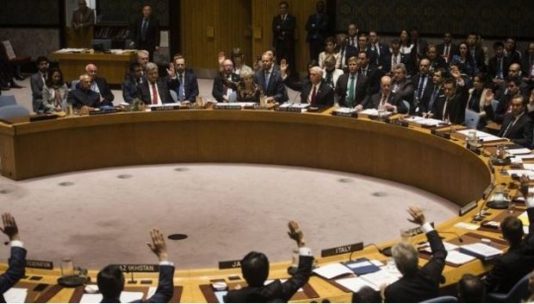
|
On Wednesday, in an open debate session of the UN Security Council Ukraine President Petro Poroshenko requested that a full UN peacekeeping mission be deployed to the Donbas region of Ukraine where conflict has grown between Ukraine and Russian-backed separatists. According to Poroshenko, this mission would patrol the entire conflict zone, including the border between Russia and the separatist-held parts of the Donetsk and Luhansk region. Earlier this month, Russian President Vladimir Putin earlier in September called for a UN mission only along the direct conflict line and potentially to monitor areas to ensure the safety of the Organization for Security and Cooperation in Europe (OSCE) observers that are already in Eastern Ukraine. President Poroshenko argues that the Russian plan would only further cement the lines between Ukraine and the Russian-backed separatists. Comment: Since Russia and Russian-backed separatists took control of the Crimean Peninsula in April 2014, more than 10,000 civilians and combatants in Eastern Ukraine have been killed. The Human Rights Monitoring Mission in Ukraine has recorded 26 civilian deaths and 135 injuries in the Donbas region from mid-May to August of this year. (UNIAN News, Radio Free Europe, Bloomberg News)
Researched/Written by Amy Pipher
|
|
|
|
|
| |
This week in the Middle East & North Africa
|
|
|
|
| |
IRAQ: Prime Minister threatens military intervention ahead of Kurdish independence referendum
On Monday, Iraqi Prime Minister Haider al-Abadi called for an immediate suspension of the upcoming independence referendum in the semi-autonomous Kurdish region in northern Iraq. Al-Abadi said the referendum “will lead to dangerous outcomes, resulting in the division of Iraq and threatening civil peace.” He stated he was prepared to intervene militarily if the referendum “results in violence.” The Iraqi Supreme Court, unable to bar the Kurdish Region’s referendum, urged that the referendum be postponed until it could be confirmed as constitutional. The President of the Kurdistan Regional Government’s (KRG), Massoud Barzani, insists the referendum would continue unimpeded despite Iraqi and international opposition. He explained that a yes-vote would not result in immediate secession but instead would jumpstart “serious discussions” with Baghdad. Comment: The KRG announced in June that it would hold a referendum on independence on September 25. A large number of countries including Iran, Turkey, the U.S., the UK, France as well as the UN have objected to the referendum, citing escalated regional instability and the possible obstruction of the fight against the self-proclaimed Islamic State. Israel is the only country thus far to back Kurdish independence aspirations. (Al-Arabiya, Al Jazeera, BBC, VOA News, Reuters)
|
|
|
|
|
| |
PALESTINE: Hamas accepts Abbas’s demands for reconciliation
| |

|
On Sunday, Hamas leadership accepted the fundamental conditions for a reconciliation deal proposed by Palestinian Authority President Mahmoud Abbas after more than a week of dialogue hosted by the Egyptian government in Cairo. The conditions include dissolving Hamas’ administrative committee in Gaza, agreeing to a national election for a Palestinian national consensus government that would be in charge of both the West Bank and Gaza, and inviting Palestinian Authority ministers to Gaza to “carry out their duties immediately.” President Abbas responded positively to the news on Monday, promising Hamas’ Chief Political Director Ismail Haniyeh they will continue to work out the details of their agreement upon his return from the United Nations meeting in New York this week. Comment: In March, Hamas suggested it would make Gaza its own administrative committee to be a permanent governing entity in what was seen as a provocative rebuke of Abbas and the Fatah party. In response, Abbas cut Gaza’s access to electricity by withholding bill payments to the Israeli utility company that provides electricity to Gaza in an attempt to bring Hamas to heel. The Gaza Strip and the West Bank broke into factions in 2007 after Hamas was democratically elected in Gaza and took control after a bitter factional feud with Fatah. The agreement represents the first reconciliation attempt since 2014. (Daily News Egypt, Haaretz, Al Jazeera, New York Times, Associated Press, Reuters)
|
|
|
|
|
| |
SYRIA: Battle for self-proclaimed Islamic State’s ‘capital’ of Raqqa nearly won
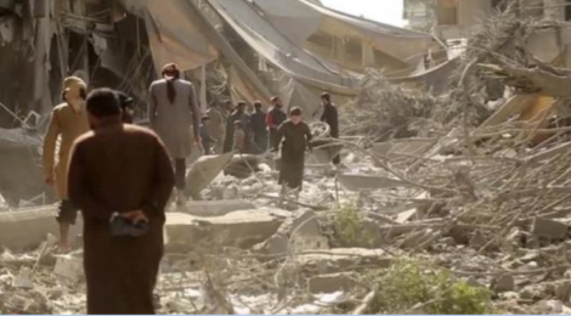
|
|
On Wednesday, the Western-backed Syrian Democratic Forces (SDF) released a statement stating that they have pushed out the self-proclaimed Islamic State (IS) from more than 80% of the northern city of Raqqa, their de facto capital. The SDF offensive is in its final stages, opening a new front in the northern part of the city. The Syrian Observatory of Human Rights (SOHR) reports that IS has been removed from 90% of the city and that their remaining forces withdrew to the central neighborhood of al-Amin and are critically low on provisions. However, SOHR predicts that wresting control of the remaining 10% of the city will be the hardest part of the siege, as their position is heavily fortified with mines and a hostage population used by IS soldiers as human shields. Comment: Operation “Euphrates Wrath” was initiated on June 6. 15,000 SDF fighters encircled the city with support from US-led coalition air strikes and special forces. SOHR has reported more than 1,000 casualties since the start of the siege. (SOHR, BBC, Reuters)
Researched/Written by Zachary Libow
|
|
|
|
|
| |
AFGHANISTAN: NATO commander confirms support in Afghanistan after one killed, two injured in attack
On Saturday, General John Nicholson, commander of the NATO-led Resolute Support Mission and leader of US forces in Afghanistan, reasserted the alliance’s commitment to supporting the Afghan government and its people after a suicide attack killed one and injured two others. The attack took place in Kandahar province on Friday when an assailant drove an explosive-filled vehicle into a NATO convoy. One soldier was killed, and two others injured – all three casualties were Romanian forces supporting the mission. Comment: In addition to claiming responsibility for the attack, a Taliban spokesperson communicated with journalists via WhatsApp, exaggerating reports of additional soldiers having been killed. Recent Taliban attacks affirm the group’s pledge to “turn Afghanistan into a graveyard for foreign forces” in response to President Trump’s announcement that the U.S. military will remain in Afghanistan indefinitely. This was the third attack claimed by the Taliban against foreign military personnel this month. (Asharq Al-Awsat, Indian Express, Khaama Press, Garda)
|
|
|
|
| |
INDIA: Government cites terror ties to win legal clearance to deport 40,000 Rohingya refugees
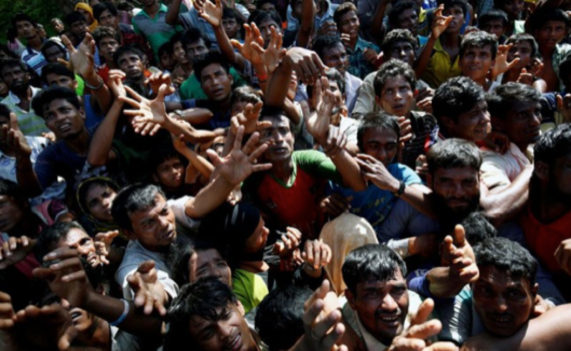
|
|
On Monday, the Indian government justified the proposed mass deportation of the recent influx of Muslim refugees for reasons of national security. Home Ministry officials claimed they had evidence linking some Rohingya in India to Pakistan-based terror groups, and cited this as a national security threat. They added that they would provide the Supreme Court with evidence confidentially at its next hearing on October 3rd. A lawyer representing the Rohingya has denounced all claims, stating, “This is clearly a case of religious discrimination and an attempt to arouse an anti-Muslim feeling.” Comment: Indian home ministry officials also claim they have evidence of Rohingya involvement in plots orchestrated by the self-proclaimed Islamic State. At the same time that Prime Minister Modi’s Hindu nationalist government is trying to expel 40,000 Rohingya Muslims, it is seeking policies to make it easier for Hindus, Christians, Buddhists, and other minorities fleeing religious persecution in Pakistan and Bangladesh, to gain Indian citizenship. (India Today, Al Jazeera, CNBC, Reuters)
|
|
|
|
|
| |
PAKISTAN: Diplomats from Pakistan and U.S. aim to repair diplomatic relations despite concerns over new Trump policy
| |
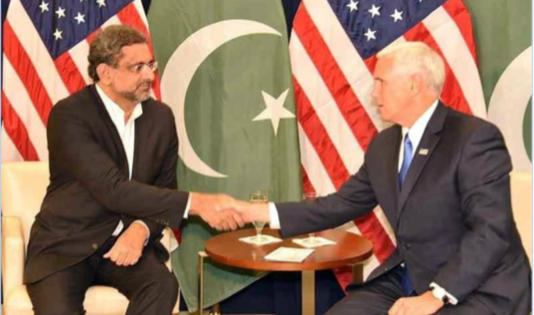
|
On Wednesday, Pakistani Prime Minister Shahid Khaqan Abbasi spoke in Washington, D.C., asserting that – despite deepening tensions between Pakistan and the U.S. – the two countries will continue to work together towards peace and stability in the region. This statement came one day after Abbasi met with U.S. Vice President Mike Pence on the sidelines of the 72nd United Nations General Assembly session. During the meeting, Abbasi voiced his concerns with President Donald Trump’s latest strategy for South Asia, particularly in regards to India’s greater role in Afghanistan. Comment: Trump has repeatedly claimed that Pakistan is providing sanctuaries for terrorists – an accusation Pakistan denies. Pakistan’s Foreign Secretary called Tuesday’s meeting an “ice-breaker” and said a U.S. delegation will arrive in Pakistan next month for a bilateral dialogue. (The Dawn 1, 2, Nation, Times of India)
Researched/Written by Natalie A. Landau
|
|
|
|

|
|